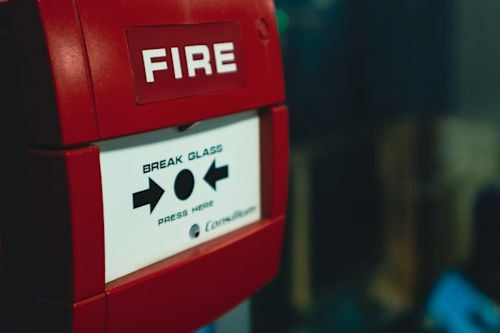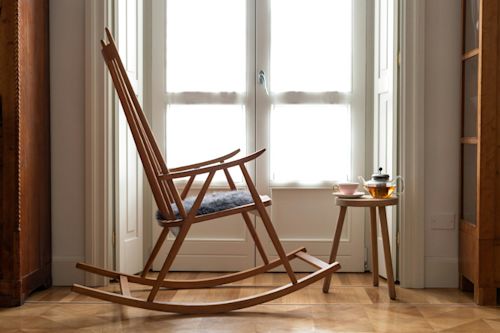
Limiting the spread of viruseswithin hospitals and healthcare facilities is vitally important. This involvesrestricting contactvia surfaces, such as door handles, which is the primary means by which viruses easily spread. This situation is all the more dangerous for vulnerable and immunocompromised patients, as well as for healthcare workers themselves. Healthcare facilities are keen to implement a range of measures toimprove staff and patient comfort, hygiene, and response times in emergency situationswithin buildings. This range of measures is being implemented through collaboration with partners such as dormakaba, while simultaneously improving accessibility of the premises for all users, depending on their accreditation levels or profiles.
Health control
Controlling the spread of germs is a top priority. Regular doors require physical contact to open and close to let in goods and people. They must then be disinfected regularly, in order to limit their involvement in the disease transmission process. With automatic doors , the situation is quite different, since they do not requireany contactto open and close. They eliminate the need for contact for free movement, and consequently, the spread of germs, as they are either equipped with motion, presence, or foot sensors, or are remotely activated to open so you can move from one room to another.
Security
It is important to control access to sensitive areas, prevent intrusions, facilitate emergency evacuations, and comply with fire safety standards. Automatic access roads offer greater resistance to intrusions and improved accessibility. They are also equipped with detection and protection systems to prevent accidents.
Hygiene
If your hands are dirty or you need to protect them from microbial colonization, then automatic doors are the wisest choice. There's no need to worry about elbowing your way through to avoid touching handles with gloved hands, as these doors can be opened from a safe distance. This reduces manual contact with handles, buttons, or keypads, limiting the spread of germs and viruses. They're also easy to clean and disinfect, and can be equipped with antibacterial or antistatic coatings. Automatic door systems offersmooth, contactless operation, which is essential for limiting the spread of infections. Their advanced design allows opening and closing to adapt to the flow of people, reducing the risk of cross-contamination. The details of their installation and use are designed to meet the specific requirements of medical environments, such as automatically adjusting the opening speed or the ability to program operating modes according to the time of day.
Accessibility and comfort
When your movements are restricted or your hands are busy, it is sometimes difficult to free them to access another room. Thus, automatic doors facilitate the passage of people with reduced mobility (PRM), wheelchairs, stretchers, trolleys and ambulances. They open and close quickly and silently, without hindering the flow of users. This practicability of common doors in establishments open to the public (ERP), such as shops, hospitals and administrative buildings, is materialized by the integration of barrier-free access systems for PRM, children and the elderly. They also contribute to improving thethermal and acoustic comfortof healthcare establishments, ensuring good insulation and noise reduction. In addition, they allow the creation of bright and pleasant atmospheres, thanks to transparent or tinted glazing, or decorative panels.
Automatic door solutions for healthcare facilities

Technological developments and artificial intelligence have enabled significant advances in the implementation of automatic openings, allowing for a wide range of options when choosing the right product for each space requiring security.
Sliding doors
Sliding doors are ideal for main entrances (as are revolving doors ), hallways, or waiting rooms, as they offer a wide opening and save space. They can be single, double, telescopic, or curved, and made of glass, wood, or metal. They can also be equipped with sealed leaves, peripheral seals, or air filters, ensuring optimal sealing.
Swinging doors
They are suitable for bedrooms, offices, or treatment rooms, as they allow for 90° or 180° opening and automatic or manual closing. They can also be single or double, made of glass, wood, or metal. For maximum security, and depending on your needs, they can incorporate electric locks, door closers, or panic devices to ensure maximum safety.
Folding doors
They are suitable for confined spaces, emergency exits, or elevators, as they allow for rapid opening and closing without obstructing the passageway. They can be single or double, and can be made of glass, wood, or metal. Equipped with detection, protection, or emergency systems, they ensure maximum reliability.
Hermetic doors
Hermetic automatic doors are particularly suitable for operating rooms, clean rooms, or laboratories, as they guarantee perfect airtightness, watertightness, and dustproofing. Generally used for emergency exits or access control, they can be sliding or hinged, made of glass, wood, or metal, sometimes equipped with control, regulation, or filtration systems, ensuring optimal hygiene. Automatic doors are essential solutions for healthcare facilities. There are several types, which adapt to the needs and constraints of each project. dormakaba is a trusted partner, offering quality, innovative, and customizable products for automatic doors. To discover automatic door solutions that meet current standards and are intended for healthcare facilities, contact the company. You can also find out about the best solutions for maintaining them and keeping them in good condition.



